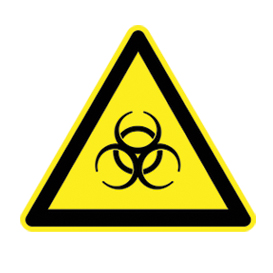
Concerned about the latest bug going around? Well if you work for national or international health organizations, then you’d be actually be worried about the bug not here yet. What exactly is a super bug and why are healthcare professionals around the world on the edge fearing its arrival?
Most bacteria related illness today is simply treated by a regiment of antibiotic medicine which cures most ailments. But what if a new bacteria circulates that does not respond to the antibiotics? This fear will quickly send all notions of medicine and science back to pre-penicillin days when infectious bacterial diseases were a major cause of death.
Ever since penicillin came to be in the 1940’s, antibiotics helped save countless lives from everyday wounds and injuries, to the bacterial illnesses caused by the bugs going around. As humanity celebrates this great achievement, bacteria have been planning a comeback – quietly, but steadily.
The notion of antibiotic resistant bacteria is not new and clearly predicted by the inventor of penicillin himself, Alexander Fleming. “It is not difficult to make microbes resistant to penicillin in the laboratory by exposing them to concentrations not sufficient to kill them, and the same thing has occasionally happened in the body.”
The danger, as Mr. Fleming shares, is in the improper dosage of antibiotics. Although he is mostly concerned with individuals underdosing on antibiotics, today’s society is actually overdosing on antibiotics. And this overdosing is leading to bacteria evolving and mutating in ways that make them immune to modern medicine.
Today, in the age of revolutionary medicine, 2 million people in America a year are infected with bacteria that are immune to antibiotic medicine. This include tuberculosis, gonorrhea, and staph infections. Out of the 2 million, 23,000 actually die from these illnesses that antibiotics would normally help cure.
These ‘superbugs’ are a result of an overdose in antibiotics over the last half century. On one side there are individuals who take improper doses (over and under) of medicine and the over utilization of antibacterial products (soap, sanitizers, etc). On the other, there is a great concern about the mass feeding of antibiotics to livestock and the impact that has on the people to consume the meat.
Superbugs are already here and although only .6% of the population is affected every year, the concern is the exponential growth in an epidemic sense. Professional health monitors are trained and ready to respond to an identified outbreak, but what are individual actions we can take to reduce the risk?
- Don’t expect or demand antibiotics from your doctor. Sometimes your body just needs rest and time to defeat an illness. Unless your doctor insists, don’t consider antibiotics your first choice.
- If you do take antibiotics, take the proper dose at the proper intervals. Even if you are feeling better and have a few days left, make sure to continue the prescription to completion.
- Consider your usage of antibacterial materials. When surrounded by hand sanitizers, and antibacterial body and cleaning products, your environment may be ripe for brewing these superbugs. Evaluate the need for these materials and use everything in moderation.
- Do not share your antibiotics or take some from others. Different antibiotics have different strengths and different focuses. Taking the wrong medicine can cause more bad than good.
- And the most important one: wash your hands! Washing hands (with regular soap) is the best way to limit the transfer of bacteria in your environment.
